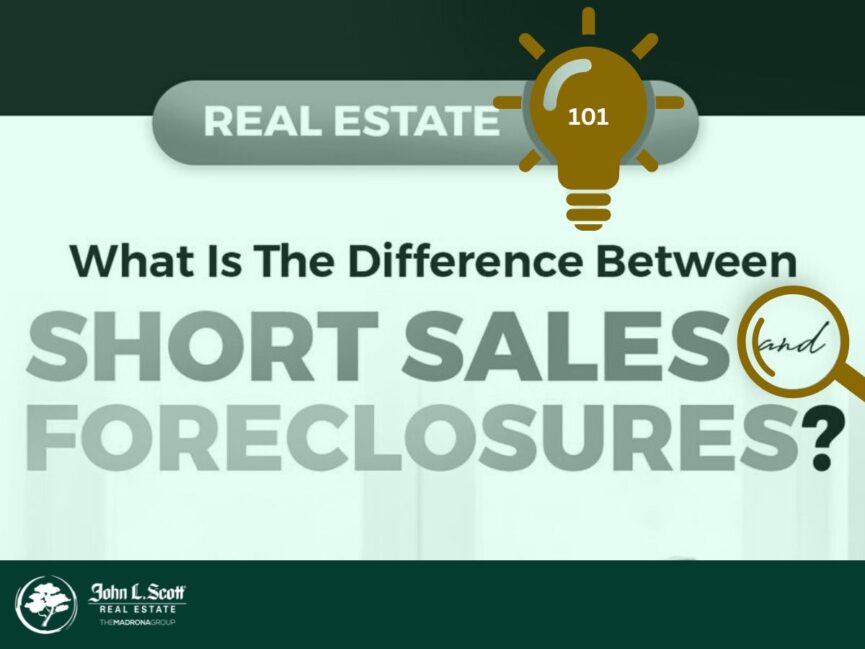For homeowners who fall behind on their mortgage payments, mainly due to a sudden financial crisis, such as unemployment and other income loss, unexpected debts, interest rate hikes, or economic downturn, among others — the two main options available are either a short sale or foreclosure. So what is the difference between Short Sales and Foreclosures?

In both cases, the owner is forced to part with their hard-won investment, turning their homeownership dream into a nightmare.
Let’s take a closer look at what these things are, their differences, and which is the better option for any homeowner depending on their situation and timeline.

WHAT IS A SHORT SALE?
A short sale occurs when the homeowner or property holder owes more on the mortgage balance than the sale price of the property at the point they want to sell. It happens when the home has substantially depreciated in market value since its purchase. For example, if the homeowner sells a house for $200,000, but still has a remaining mortgage loan balance of $250,000, that would be a short sale. The homeowner or seller is technically “short” by $50,000.
No short sale may happen without the blessing of the lender. Once the short sale is approved by the lender and the property is sold, all proceeds from the sale go to the lender. The homeowner gets nothing and ideally will be free of any financial obligations for the home.
However, one thing to watch out for is the so-called “deficiency judgment”, which the lender can file against the homeowner to make up for the loss. While many states outlaw this practice, it’s critical that you read over your paperwork or ask about it to ensure you won’t have any personal liability.

WHAT IS A FORECLOSURE?
A foreclosure, on the other hand, is a legal process that takes place when a homeowner (or borrower, in this matter) stops making mortgage loan payments for a significant period of time. After three to six months of missed payments, a lender will issue a Notice of Default with the county recorder’s office. The notice is to inform the homeowner that foreclosure proceedings have started, and they could be at risk of getting evicted.
After receiving the notice of default, the borrower enters into what’s known as the “pre-foreclosure period”, which can last anywhere from 30 to 120 days. During this time, you’ll have the opportunity to work with your lender to avoid foreclosure, either through any of the following:
- Paying the past due balance in full;
- Modifying the mortgage terms and reducing your monthly payments;
- Selling the home through short sale or deed in lieu of foreclosure.
If the debt isn’t resolved by the end of the pre-foreclosure period, the lender will step in and foreclose on the home. The homeowner will be evicted and a foreclosure auction will be scheduled to sell the house to a third party. If the property isn’t sold at auction, the lender becomes the owner and it’s then considered a bank-owned or real estate-owned property.

SHORT SALE VS. FORECLOSURE
| SHORT SALE | FORECLOSURE | |
|---|---|---|
| Homeowner’s involvement | Voluntary by the homeowner but requires approval from the lender | Involuntary for the homeowner; the lender takes legal action to take control of the property |
| Speed and timing | Typically takes 90 to 120 days or even longer, since the bank won’t approve the sale without a buyer agreeing to its demands | Moves along much faster since lenders want to recoup the costs incurred by the unpaid mortgage |
| Impact on credit score | Far less damaging to the borrower’s credit score | Will stay on a borrower’s credit report for seven years |
| Living in the home | Homeowners can stay in the home until the sale is completed | Homeowners are forced to vacate |
| Payment terms (for buyers) | Can be bought with a mortgage loan | Can only be purchased with cash |
| Method of sale | Listed by a real estate agent specializing in short sales | Auctioned |
Share this post!




